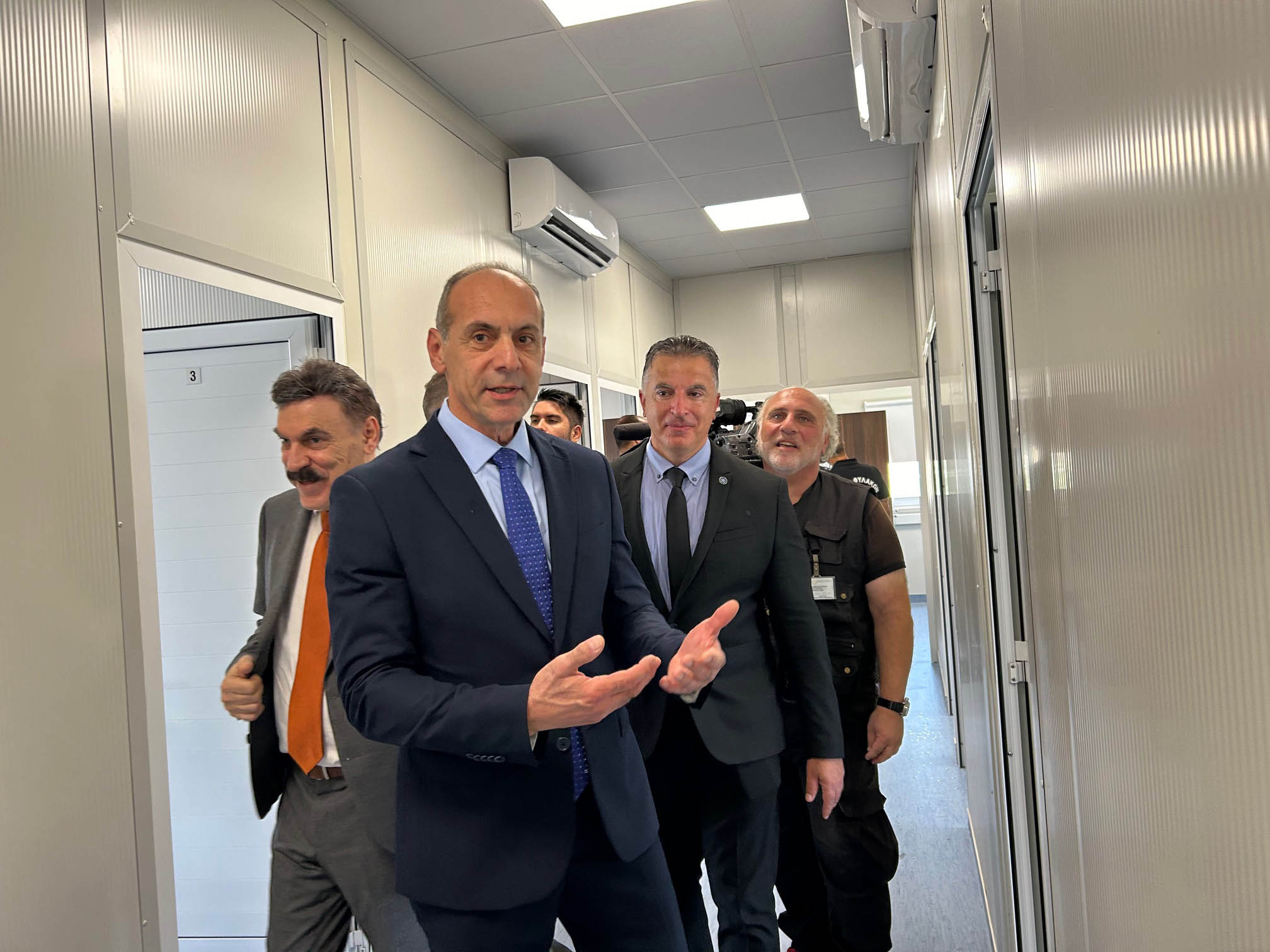The government is “determined” to fight organised crime in prisons, Justice Minister Marios Hartsiotis said on Tuesday.
Speaking at the inauguration ceremony of the central prison’s guidance and post-prison employment centre, he said the government “has shown the will and also the efficiency and determination” to fight organised crime in prisons.
“The slightest tolerance will not be shown,” he added.
Part of the government’s strategy to fight organised crime in prisons is “surprise checks” of prisoners and their cells, with the aim of finding any mobile phones, illegal drugs or other contraband which could have made its way into the prison.
Additionally, he said, the government is aiming to introduce a new system which will block mobile phone signals inside the prison. He added that this is something the government has been working on “for a long time”, with hopes for it to be rolled out in the near future.
“Until then and until this system comes, is introduced, implemented, and activated, we are dutifully obliged to deal with matters such as the import of drugs and the use of mobile phones, two things which have been proven to be used to organise criminal acts,” he said.
For this reason, he said, “the necessary checks must be carried out as often as possible to limit these phenomena, which are unacceptable.”
He also issued his own condemnation of the bombing of a prison officer’s car last week, describing it as a “sad, unacceptable event”.
“This is an attack essentially against the Republic, against the rule of law, and the police will do everything they can to find the culprits, who will be punished in an exemplary fashion,” he said.
Additionally, he spoke about the opening of a new wing at the central prison. The wing is set to open by the end of September and will house a total of 240 prisoners, reducing the prison’s issue of overcrowding by 30 per cent.
“This infrastructure … is the first phase to alleviate the issue of overpopulation,” he said, adding that a new prison building will be built in the future and house a total of 360 people.
He also pointed out that the new open wing, which opened at the end of February, can house up to 60 prisoners, further easing the issue of overcrowding.
The guidance and post-prison employment centre allows people being housed in the open prison to find employment on their release or partake in education and training programmes outside the prison.
He explained that prisoners who are accepted into the centre serve the remainder of their sentence with limited and controlled freedom, with the aim of “gradual and orderly reintegration into society”.
“They work in the free market, for an employer and in a role approved by the relevant committee or the prison governor, and their terms of employment are the same as the rest of the workers on the outside and in the wider professional sector,” he said.
“The ministry recognised the difficulties faced by prisoners upon their release and wanted to contribute to their smooth reintegration into society,” he said, adding that the results of the memorandum’s implementation are “particularly encouraging”.
With this in mind, he said, the government hopes to further expand it to “maximise these positive results”.







Click here to change your cookie preferences